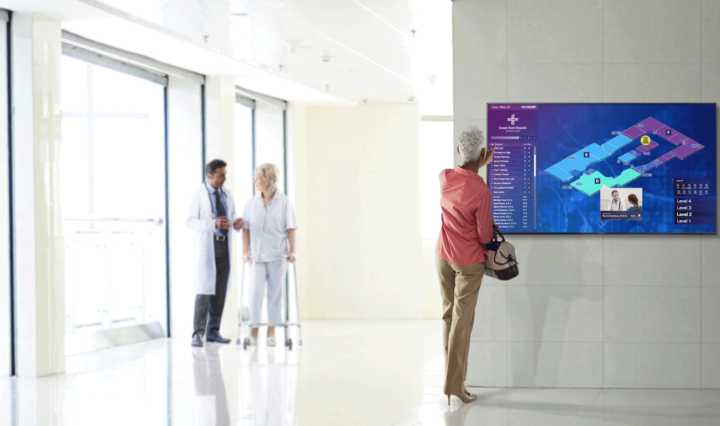Automation, machine learning and artificial intelligence are changing the world of work. As with all previous industrial revolutions while the long-term impact can be hard to predict, what we are seeing is these new technologies are already creating new ways to work. Take healthcare providers, it’s not man versus machine. It’s machine providing man with some much-needed backup.
Hospitals now face a huge talent shortage, a growing and aging patient population, ever-changing administrative requirements and record-keeping technology that sometimes complicates the very processes it promised to simplify. In short, there are too few healthcare professionals, too many patients, too much paperwork and not enough hours in the day.
Machine learning in healthcare addresses these challenges by automating tasks that humans don’t want to do (like paperwork) and tasks that computers do better (like data analysis). This frees up doctors and nurses to spend more time doing what they got into medicine to do: engage with patients.
Paperwork Problem Solved
Think about the last time you went to a doctor’s office or a hospital. The receptionist asked you several questions and handed you a stack of forms with more questions. Then a nurse asked similar questions to create a summary for the doctor, who asked you many of the same questions again.
As frustrating as these redundancies are for patients, they’re even more frustrating for care providers. A study by the American Medical Association states physicians spend nearly half their clinic days doing paperwork and entering information into the electronic health records (EHR) system. They spend 27 percent of their time in exam rooms, but even then, 37 percent of the consultation involves patients watching the doctor enter information into the EHR.
Revolutionize the Patient Experience
See how innovative hospitals are using digital technology to keep patients happy and healthy. Download Now
All this data-gathering is important. The more information health care providers have about patients, the easier it is to diagnose and treat diseases, and to prevent future complications. But it’s also a time-consuming process that’s prone to human error.
Some hospitals are already using apps and tablets for digital patient check-in. But as machine learning in healthcare becomes increasingly sophisticated, AI could eventually eliminate the need for human beings to interview patients at all. Not only would this make hospital staff more productive; it could also enhance the patient experience.
Imagine a patient walks into an emergency room. Instead of waiting on a triage nurse to ask about her symptoms and determine the severity of her emergency, they’re handed a smartphone loaded with an AI chatbot. The chatbot asks a few questions, processes their answers, asks more relevant questions to get to the root of their problem and puts them in line to see the appropriate doctor. Overall, they spend less time in the waiting room, and care providers spend more time actually providing care. That’s a win/win for everyone, including the hospital’s bottom line.
Paging Dr. AI: You’re Needed for a Consult
Conducting patient interviews is just the beginning of what machine learning in healthcare can do. By next year, 30 percent of care providers will use cognitive analytics with patient data, according to industry analysts at IDC.
In the age of the Internet of Things, there are sensors gathering potentially relevant health related data everywhere — in patients’ smartphones, in fitness trackers and smartwatches like the Samsung Gear S3, in connected medical devices like heart monitors and insulin pumps, and even in people’s cars. But care providers don’t currently have a way to gather all of this information in one place or to glean meaningful insights from it.
AI bots and algorithms can look across a patient’s entire medical history, analyze health data from various personal and connected medical devices, see where they’ve traveled, and access any other relevant information. Then it can use that information, along with patient symptoms, to suggest diagnoses and treatment plans to doctors.
What does that leave for doctors to do? Plenty.
Most patients won’t mind chatbot triage if it means a lower hospital bill and faster treatment for certain conditions, but few people would want to receive a serious diagnosis or discuss treatment options with a robot. AI can’t empathize, sympathize or show compassion. It also can’t comfort patients with a gentle pat on the back or a warm bedside manner.
At the same time, that machine learning in healthcare makes big data more accessible to care providers, and advances in mobility will provide seamless delivery of AI-driven insights to healthcare professionals. Rather than staring at laptops during patient consultations, physicians can glance at diagnostic results on their smartphones or dictate notes via their smartwatches.
Technology will never replace doctors and nurses, but it can make them more efficient and enhance the patient experience.
Explore cutting-edge healthcare technology in more depth by checking out our full line of healthcare solutions.









